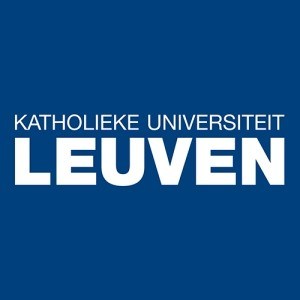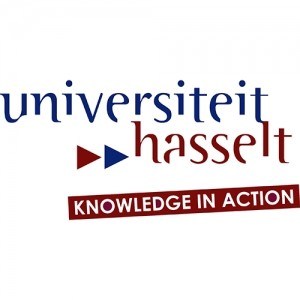Photos of university / #kuleuven
The Master of Science in Nanoscience, Nanotechnology and Nanoengineering at KU Leuven offers a comprehensive and interdisciplinary education dedicated to exploring the fascinating world of nanoscale materials and systems. This programme is designed for students who are eager to understand and manipulate matter at the atomic and molecular levels, leading to innovative applications across various fields such as electronics, medicine, energy, and environmental science. The curriculum combines fundamental science with advanced engineering techniques, allowing students to develop a deep understanding of the physical, chemical, and biological properties of nanomaterials and nanostructures. Core courses cover topics including quantum mechanics, surface and interface science, nanofabrication, characterization methods, and computational modelling, providing students with both theoretical knowledge and practical skills.
In addition to coursework, students engage in hands-on laboratory work and research projects, often collaborating with industry partners and research institutes, fostering an environment of innovation and real-world problem-solving. The programme emphasizes sustainable and responsible nanotechnology development, ensuring students are equipped to address societal challenges in health, environment, and technology. Students have the opportunity to specialize through elective courses and choose a master's thesis project aligned with their interests, often involving cutting-edge research in areas like nanoelectronics, nanomedicine, or advanced nanomaterials.
The programme is taught in English by leading experts in the field, providing a dynamic learning environment enriched with international perspectives. Graduates are well-prepared for careers in research and development, academia, or industry, where they can contribute to technological advancements and innovation in nanoscience and nanotechnology sectors. With access to KU Leuven's state-of-the-art laboratories and research facilities, students gain invaluable practical experience, positioning them at the forefront of scientific discovery and technological innovation at the nanoscale.
Nanoscience and Nanotechnology Fundamentals
Students take a maximum of 15 credits.
The Nanoscience and Nanotechnology Fundamentals will offer the students the necessary basis to disciplines in which they have had no training during their bachelor stages studies and which are essential for the rest of the master. The Nanoscience and Nanotechnology Fundamentals can be necessary in physics, chemistry, biology and electronics. The Nanoscience and Nanotechnology Fundamentals will be determined for each incoming student, based on his/her previous education. Once the fundamental courses are selected and approved they become compulsory for the master. If the students need less than 15 credits, the remaining credits can be chosen from the broadening elective courses.
- Quantum Physics
- Semiconductor Physics
- Structure, Synthesis and Cellular Function of Macromolecules
- Electronic Components, Circuits and Sensors
- Atom Theory, Chemical Periodicity and Chemical Bond
- Semiconductor Devices
Core Courses
All courses are obligatory.
H06N2A "Lectures on Nanoscience and Nanotechnology" is spread over two academic years. Students have to follow this course in the first programme stage, and also in the second programma stage.
Important: Students have to select H06N2A via their ISP (My Studyprogramme) in the second programme stage.
- Nanostructured Bio-Macromolecules
- Materials Physics and Technology for Nanoelectronics
- Chemistry at Nanometre Scale
- Technology of Integrated Systems
- Advanced Nano-Electronic Components
- Mesoscopic Physics
- Lectures on Nanoscience and Nanotechnology
Options
Option: Nanomaterials and Nanochemistry
- Nanomaterials for Nano-electronics
- Materials Characterization Techniques I: Microscopy and Diffraction
- Materials and Devices for Photovoltaic Applications
- Chemistry and Characterisation of Surfaces and Thin Films
- Physical Chemistry of Polymers
- Nanostructure Determination via Electromagnetic Radiation
Option: Nanoelectronic Design
- Design of Electronic Circuits
- Computer Architectures
- Analog Building Blocks for Signal Processing
- Design of Digital Platforms
- Design of Digital Integrated Circuits
Option: Nanodevices and Nanophysics
- Electronic Transport
- Electronic and Optoelectronic Devices
- Optical Properties of Solids
- Microsystems and Sensors
- Integrated RF Components and Circuits
- Physical Material Characterisation Techniques for Electronic Devices
- Reliability and Yield for Micro- and Nanoelectronic Components
Option: Nanobiotechnology
- Biosensors and Bioelectronics
- Nanobiology
- Biomachines and Biomimetics
- Physical Chemistry of Biological Systems
- Biofluidics
- Micro- and Nanofluidics
Broadening Elective Courses
The student chooses minimum 9 and maximum 27 credits from cluster 1-5, other than their compulsory option specific courses.
Cluster 1: Nanomaterials & Nanochemistry
- Materials Characterisation Techniques II
- Photophysics and Photochemistry of Molecular Materials
- Chemistry and Characterisation of Surfaces and Thin Films
- Physical Chemistry of Polymers
- Electrochemical Methods in Inorganic Chemistry
- Structures and Microstructures of Materials
- Materials Modelling and Simulation Techniques
- Nanomaterials for Nano-electronics
- Electronic Structure of Molecular Materials
- Nanostructure Determination via Electromagnetic Radiation
- Materials Characterisation Techniques I: Chemical Analyses and Surface Analysis
- Materials Characterization Techniques I: Microscopy and Diffraction
- Materials and Devices for Photovoltaic Applications
- Surface Science and Engineering
Cluster 2: Nanoelectronics Design
- Computer-Aided IC Design
- Design of Digital Integrated Systems
- Analog Building Blocks for Signal Processing
- Design of High-Frequency Integrated Circuits
- Design of Digital Platforms
- Design of Electronic Circuits
- Computer Architectures
- Design of Analog Integrated Circuits
- Design of Digital Integrated Circuits
Cluster 3: Nanodevices and Nanophysics
- Optical Properties of Solids
- Microsystems and Sensors
- Integrated RF Components and Circuits
- Molecular Photonics
- Electronic Transport
- Computational Methods in Solid State Physics
- Magnetic Resonance
- Electronic and Optoelectronic Devices
- Physical Material Characterisation Techniques for Electronic Devices
- Reliability and Yield for Micro- and Nanoelectronic Components
- Scanning Probe Microscopy
- Materials and Devices for Photovoltaic Applications
Cluster 4: Nanobiotechnology
- Bioresponse Measurements and Process Control
- Physical Chemistry of Biological Systems
- Biophysics of Membranes
- Biofluidics
- Mechanobiology
- Biosensors and Bioelectronics
- Nanobiology
- Biomachines and Biomimetics
- Micro- and Nanofluidics
- Human System Physiology
Cluster 5: Additional Courses
- Capita selecta ingenieurswetenschappen I.1. (Athens / Summer Course)
- Capita selecta ingenieurswetenschappen I.2. (Athens / Summer Course)
- Capita selecta ingenieurswetenschappen II.1. (Athens / Summer Course)
- Industriële stage: Nanowetenschappen en nanotechnologie / Industrial Internship: Nanoscience and Nanotechnology
- Capita selecta ingenieurswetenschappen II.2. (Athens / Summer Course)
Master's Thesis
Requirements
- Admitted are Bachelor students in physics, applied physics, chemistry, biochemistry, electrical engineering, material science, bioscience engineering or a related discipline, with a proven background in mathematics and physics or chemistry. Students in their last year of such a bachelor programme will also be considered.
- A minimum of 180 credits (equivalent to the ECTS credit system, i.e. corresponding to a minimum of 3 years of bachelor study) and a GPA (Grade Point Average) of at least 75% of the scale maximum is required.
- Language requirements: Applicants enrolling for the first time at KU Leuven prove their English language proficiency by means of an IELTS or TOEFL test. The minimum score required for IELTS is 7 (with no subscore under 6.5), for the TOEFL internet-based test it is 90 (with no subscore under 22). Applicants with a university degree or high school degree earned in Australia, English-speaking Canada, Ireland, New Zealand, United Kingdom or the USA are exempted from this requirement: the degree and transcripts suffice, provided they confirm that the entire study was completed in English.
- The admission policy is intended to ensure equal opportunity of access to higher education for qualified European and third country students.
- All applicants (EEA and non-EEA) will have to pay an application fee of 50 € to process their file.
- PDF scans of your diplomas and transcripts of academic records
- PDF scan of the translation of your diploma and official transcripts
- The PDF scans of the TOEFL or IELTS certificates have to be uploaded in the web application Applicant. The original TOEFL or IELTS certificates have to be sent directly by ETS or by the official IELTS test centre administered by The British Council or IDP Education to International Admissions and Mobility at KU Leuven. Alternatively, you can also request ETS or the British Council to make your test result available to KU Leuven online, so we can verify your result via the online verification tool.
- If you still have to take the test by the time you want to submit your application file, upload a proof of registration for the TOEFL or IELTS test in the meantime. The proof of registration should mention the date when you will be taking the test.
- PDF of the proof of payment of the application fee made either via bank transfer or via credit card
- PDF scan of the identity page of your passport
- PDF of your motivation letter (recommended size: one A4 page)
- PDF of your CV
The Nanoscience, Nanotechnology and Nanoengineering program at KU Leuven offers a range of financing options to support students throughout their studies. Students can apply for various scholarships, grants, and financial aid programs designed to assist both domestic and international students. The university provides merit-based scholarships awarded to students who demonstrate academic excellence and outstanding potential in the field of nanoscience and nanotechnology. Additionally, there are alumni and partner organization scholarships that can significantly reduce the financial burden on enrolled students. KU Leuven also participates in national and European funding programs, which may include Erasmus+ grants and other mobility scholarships that facilitate exchange programs and international research collaborations.
Students are encouraged to seek external funding sources, such as government scholarships, research grants, and private foundations that support students pursuing science and engineering degrees. The university’s financial services office offers detailed guidance on eligibility criteria, application procedures, and deadlines for various financial aid opportunities. Furthermore, students enrolled in the master's program may have access to assistantships and research positions that provide stipends in exchange for certain research responsibilities. These opportunities not only reduce overall tuition costs but also enhance practical experience and professional development.
KU Leuven is committed to promoting equal access to higher education and strives to ensure that financial constraints do not hinder talented students from pursuing advanced studies in nanoscience and nanotechnology. The university regularly updates its financing options and strives to provide transparent information about costs and available funding sources through its official website and student support services. Overall, students are encouraged to explore multiple avenues of financial support to make their educational journey in nanoscience and nanotechnology at KU Leuven both affordable and enriching.
Nanoscience, Nanotechnology, and Nanoengineering at KU Leuven offers a comprehensive interdisciplinary program designed to equip students with the skills and knowledge necessary to innovate in the rapidly evolving field of nanoscale science and engineering. The program combines theoretical foundations with practical applications, emphasizing research, development, and technological advancements in nanomaterials, nanodevices, and nanostructures. Students study a wide range of subjects including physics, chemistry, materials science, and engineering principles, integrated with cutting-edge techniques such as microscopy, spectroscopy, and fabrication methods at the nanoscale. The curriculum often includes courses in quantum mechanics, surface science, and nanocharacterization, providing a solid grounding in both fundamental sciences and practical engineering skills. Throughout the program, students have opportunities to participate in research projects, collaborate with industry partners, and engage in laboratory work that fosters innovation and problem-solving capabilities. The program aims to prepare graduates for careers in academia, research institutes, and high-tech industries involved in electronics, material development, biomedical applications, and environmental technology. Many courses are taught in English, ensuring international accessibility and collaboration. The university's research facilities are equipped with advanced laboratories and instrumentation, supporting students' hands-on learning and research activities. With a curriculum that is continuously updated to stay aligned with the latest scientific and technological developments, this program offers a unique blend of science and engineering focused on nanotechnology's transformative potential. Graduates of this program are well-positioned to contribute to the development of new nanoscale materials, devices, and systems that can revolutionize various industries and improve quality of life.



